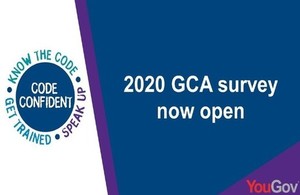DVLA retains customer service accreditation for 12th consecutive year
Gaining accreditation against Global Standard Version 7 recognises DVLA’s contact centre as an industry leader, with a commitment to driving service excellence for its customers.
DVLA’s Contact Centre is the largest single site contact centre in government, handling around 24.5 million enquiries every year and employing around 1,100 people at its purpose-built operations centre in Swansea. Independent external assessors met with staff, senior leaders and other key stakeholders at the centre last year to benchmark DVLA’s operation against the CCA standard in various categories and gather evidence to support DVLA’s accreditation.
In order to achieve ‘Version 7’ of the CCA Global Standard, DVLA took a refreshed approach to assessing its customer service operation, focusing on digital and technological development, as well as giving greater emphasis to the voices of DVLA customers and staff.
Continuous focus on customer experience, robust processes, and continuous staff development and engagement were among the key strengths highlighted by the CCA in their assessment.
The CCA’s assessment report noted that:
The DVLA Contact Centre is organised and well managed through strong leadership and excellent people development, with opportunities for people to progress across a number of different areas both operationally and through the support teams.
There is clearly a genuine desire for people at all levels to deliver strong performance results and support colleagues through training and development opportunities.
The ‘Version 7’ accreditation comes in a year that has seen significant achievement by staff at DVLA’s contact centre, with the most recent CCA Excellence Awards seeing teams and individuals recognised with Gold CCA Global Standard Achievement awards. 2019 also saw DVLA being presented with a prestigious Princess Royal Training Award for a training programme developed in-house for new and future operational leaders, in which contact centre staff participated.
Tony Ackroyd, DVLA Director of Operations and Customer Service, said:
I’m delighted that we’ve achieved this acclaimed accreditation for the 12th year in a row. Together with the individual and team achievements recognised by the CCA, the accreditation report confirms what a great job our contact centre staff do on a daily basis.
A particular highlight from my point of view is the high level of staff engagement noted in the report. Great training and opportunities for our staff to progress are at the core of our values and underpin our commitment to improving best practice, as we aim to provide a world-class service for the tens of thousands of customers we’re in contact with every day.
Notes to editors
The CCA is the leading authority on customer contact strategies and operations. Find out more about the CCA Global Standards.
At the CCA Excellence Awards in November 2019, DVLA’s Marc Richards won the Gold CCA Global Standard Achievement Award for Individual of the year 2019. DVLA’s Customer Channel Management Team (CCMT) won the Team of The Year Award.
Of the DVLA contact centre staff surveyed as part of the CCA accreditation assessment:
- 93% said the organisation was committed to training and development
- 87% said they were actively encouraged to raise improvement suggestions and ideas
- 91% said their feedback was valued
- 92% said their manager supported them with personal development goals
